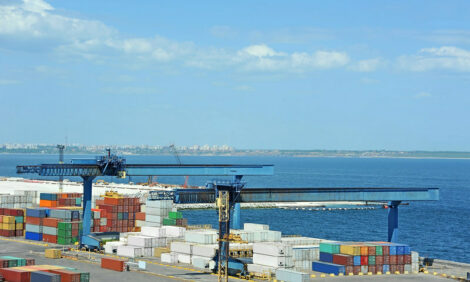



This Week's Poultry Industry News
ANALYSIS - US poultry groups have called on the trade representative Ron Kirk to take South Africa to the World Trade Organization over the anti-dumping duties imposed on US poultry products,The National Chicken Council and USA Poultry & Egg Export Council (USPEEC) have urged the trade representative "to match Brazil’s commitment to its industry by filing a World Trade Organization (WTO) challenge on behalf of US chicken exporters” against the anti-dumping duties South Africa imposed on US chicken nearly 12 years ago.
“We urge the US government to support Brazil as a third-party in its case if Brazil will agree to reciprocate and support the United States in its case,” the organisations said.
On 21 June, Brazil filed a challenge with the WTO against the anti-dumping duties South Africa imposed on Brazilian chicken. South Africa imposed anti-dumping duties on US poultry imports over two decades ago using the “same flawed theory” that it recently used against Brazilian imports, the letter explained.
Using a weighted average export price for US bone-in chicken cuts from 2000 through to the first quarter of 2012, the organisations said that the effective average duty levied by South Africa on the products is 258.8 per cent.
The US estimates that the industry could increase ite exports by 127,000 tonnes a year if the market was open.
In Europe, the European Parliament has voted for animal welfare rules to be better enforced, existing loopholes closed and offenders punished.
The MEPs said the action has to be taken because it will also protect human health, by preventing the spread of animal-related diseases and antimicrobial resistance.
The new action follows condemnation of the lax implementation of regulations from the Swedish MEP Marit Paulsen.
A new study from the European Food Safety Authority has reported that as far as food safety is concerned, there are no indications that differences exist between food products derived from healthy clones or their offspring – in particular milk and meat - from those of healthy, conventionally bred animals.
However, in its scientific statement, EFSA said that it recognises that animal health and welfare concerns continue to be associated with this technology.
EFSA’s latest statement on animal cloning, which has been produced on the request of the European Commission, agrees that no new scientific information has become available since its previous 2010 statement that would require reconsideration of the Authority’s earlier conclusions and recommendations.
The French government is considering taking further action over California's ban on the sale foie gras.
The French Department of Agriculture has called in the United States Ambassador for meeting to make him aware of the situation that has arisen following the law that came into force on 1 July in California to prohibit the sale of foie gras on animal welfare grounds.
French industry experts have called on the government to intervene, beause they claim the action is contrary to the rules of the World Trade Organization (WTO).
"The Government will consider without waiting for the legal aspects of this decision what action to take," said the Ministry of Agriculture in a statement.









